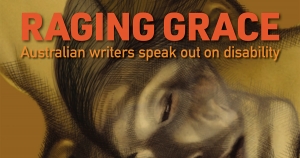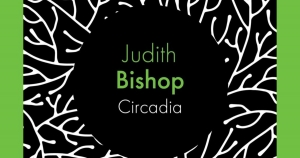Anders Villani
Anders Villani reviews ‘Raging Grace: Australian writers speak out on disability’ edited by Andy Jackson, Esther Ottaway, and Kerry Shying
In a 2010 interview, Tobin Siebers, the author of Disability Theory and Disability Aesthetics, argued that ‘[d]isability still seems to be the last frontier of justifiable human inferiority’. At the same time, he suggested, the evolution and success of modern art owed much to ‘its embrace of disability as a distinct version of the beautiful’: ‘No object has a greater capacity to be accepted at the present moment as an aesthetic representation than the disabled body.’ A central problem for Siebers was the disconnect between ‘two cultures of beauty’. Could the ‘aesthetic culture’ that celebrated disability influence the dominant ‘commercial culture’ that stigmatised it?
... (read more)In Poetry’s Knowing Ignorance, Joseph Acquisto borrows a definition of poetry from Phillipe Jaccottet: ‘that key that you must always keep on losing’. Attempting to know its subject, poetry reveals that there is always more to know. But the French poet’s metaphor, for Acquisto, does not mean ‘simple contingency’. It suggests ‘a complex play of certainty and doubt … that actively resists coming to a conclusion’. We might say that poetry expresses the friction in human experience between time and permanence.
... (read more)On a fatherhood weekend, the men drag
a dead manna gum, chained to a ute, into camp.
They’re talking innocence. Is it inborn, or clad
layer by layer by behaviour? Around the grey stump
the men start chainsaws and crack beers, open
a phone (there’s reception), search innocence definition.
Blamelessness. Chastity. Childhood. But also
integrity, which means innocence. The confusion
– that integrity means wholeness too –
heats up when one man says he heard children
arrive with sin. Then two-stroke fumes
drown the twilight bush’s scat-and-pepper scents.
They cut it. Some of the men scream, some don’t,
when spiders erupt from the warm hollow.
Early in Joel Deane’s third novel, the point of view shifts from the first to the third person as the narrator, Patrick ‘Pin’ Pinnock, reflects on a moment in boyhood, standing atop a diving board at night.
... (read more)'Poems reawaken in us,’ writes James Longenbach, ‘the pleasure of the unintelligibility of the world.’ They do so via ‘mechanisms of self-resistance’: disjunctive strategies that work, for Longenbach, to ‘resist our intelligence almost successfully’. What ‘almost’ means here is, of course, a matter of taste – and style. Nonetheless, this Romantic mandate – that poems achieve clarity by integrating opacity – invites a question fundamental to poetics: how much resistance is too much, or not enough?
... (read more)'Wallpaper', a new poem by Anders Villani.
... (read more)Anders Villani reviews 'You Made Me This Way' by Shannon Molloy
Shannon Molloy’s 2020 memoir, Fourteen, recounted a childhood and adolescence of grisly homophobic violence. Yet many readers of that book – a bestseller, adapted for the stage and optioned for a film production – may find You Made Me This Way noteworthy in part because it reveals what Fourteen left out: the sexual abuse Molloy suffered, beginning at age five, at the hands of an older boy. This omission underscores one of the book’s central theses, that on average male victims of child sexual abuse find it harder than female victims to disclose their experiences. A conditioned reticence with grave implications – ‘[t]here is death in secrecy’. Molloy’s book, a hybrid of autobiography and journalism, takes socially important steps in assessing – and humanising – these implications.
... (read more)Trauma is often said to be unspeakable. There are various reasons for this. Pain and shame are silencing, as are implicit forms of censorship (of the kind scorning trauma literature, for instance) and explicit injunctions against speaking (from perpetrators, enablers, or the law). But it is also the case that trauma doesn’t inhere in language. Trauma lives in the limbic system, which is that of the fight, flight, or freeze response, and which is necessarily more immediate than language processing. After all, when your life is under threat, it’s not words you need, but action.
... (read more)Anders Villani reviews 'Mirabilia: New poems' by Lisa Gorton
Mirabilia is the plural form of the Latin mirabile: wonderful thing, marvel. Since the publication of her first book, Press Release, in 2007, Lisa Gorton has cultivated such a voice in Australian poetry. Mordant political wit, formal and thematic bricolage, a liquid control of the line, and the ability to trace patterns across the strata of history and society – to rove between time and the timeless – have long characterised Gorton’s oeuvre. She showcases the full complement of her gifts in this wondrous and disquieting new collection.
... (read more)‘Every sacred language,’ writes Octavio Paz, ‘is secret. And conversely: every secret language … borders on the sacred.’ In the liminal Pyre, poet Maureen Alsop traverses – and erodes – this secret/sacred border, which is also the border of life and death, ‘the valley between our language’ (‘North Channel’). Each of the book’s section titles is a variation on ‘Selenomancy’, defined on the contents page as ‘a divination by the observation of the phases and appearances of the moon’. That Alsop titles multiple poems ‘Sky An Oar’, moreover, betrays the purpose of these divinations: to reach the other side, the ‘village across the waters’ that ‘burned all night’ (‘Witness’). The collection’s challenge, which it mostly meets successfully, is to remain on the compelling side of hermeticism.
... (read more)








